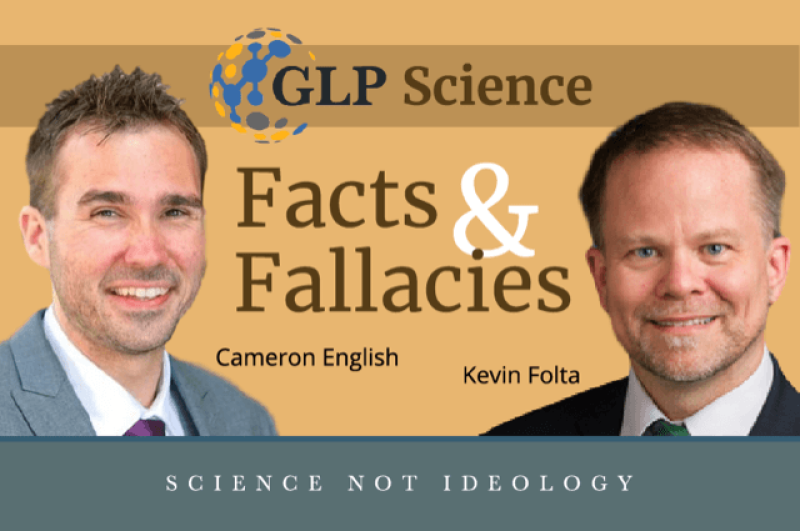Podcast:
Podcast: Play in new window | Download
Subscribe: RSS
Video:
Join guest host Dr. Liza Dunn and GLP contributor Cameron English on episode 223 of Science Facts and Fallacies as they break down these latest news stories:
Utilizing a gene-editing technology called transcription activator-like effector nucleases (TALENs), a team of researchers has cut out the gene in hens that encodes a protein responsible for many eggs allergies in young children. Their study, recently published in Food and Chemical Toxicology, has demonstrated that it’s possible to produce low-allergen eggs, but that’s only the beginning. The next step is a lengthy review process, including clinical trials, to show that foods containing these eggs are substantially equivalent to the items consumers already have access to in grocery stores and restaurants.
Warming temperatures, land-use changes and increasing global travel have enabled disease-vectoring ticks and mosquitoes to spread to parts of the world in which they’re rarely seen, including regions of the US with more temperate climates. Most of these illnesses remain uncommon. For example, the CDC reports that the US has experienced roughly 150 locally acquired cases of malaria and 60 limited outbreaks over the last five decades, and 2,000 cases found in returning international travelers. Nevertheless, slight increases raise an important question: how do we prevent malaria and other nasty diseases from regaining a foothold in the United States?
- Anti-vax presidential candidate Robert F. Kennedy Jr shows early strength against Joe Biden in polls
Controversy broke out on Twitter in recent days after vaccine expert Dr. Peter Hotez criticized podcast host Joe Rogan for giving Robert F Kennedy, Jr. a platform to promote vaccine misinformation. Rogan responded with a challenge to Hotez:
Peter, if you claim what RFKjr is saying is “misinformation” I am offering you $100,000.00 to the charity of your choice if you’re willing to debate him on my show with no time limit.
Hotez has so far refused, claiming that arguing with Kennedy would legitimize his nonsensical claims about vaccination. High-profile figures in the science community are divided on the value of such a debate. Some, like Professor of health law Tim Caulfield, say a debate would create “false balance” between sound science and vaccine conspiracy theorizing. Other commentators, such as Skeptic Magazine publisher Michael Shermer, push back that Kennedy already has widespread support and the science community has an obligation to correct his claims before he does more damage. We make the case that the debate is a smart idea.
Dr. Liza Dunn is a medical toxicologist and the medical affairs lead at Bayer Crop Science. Follow her on Twitter @DrLizaMD
Cameron J. English is the director of bio-sciences at the American Council on Science and Health. Visit his website and follow him on Twitter @camjenglish































